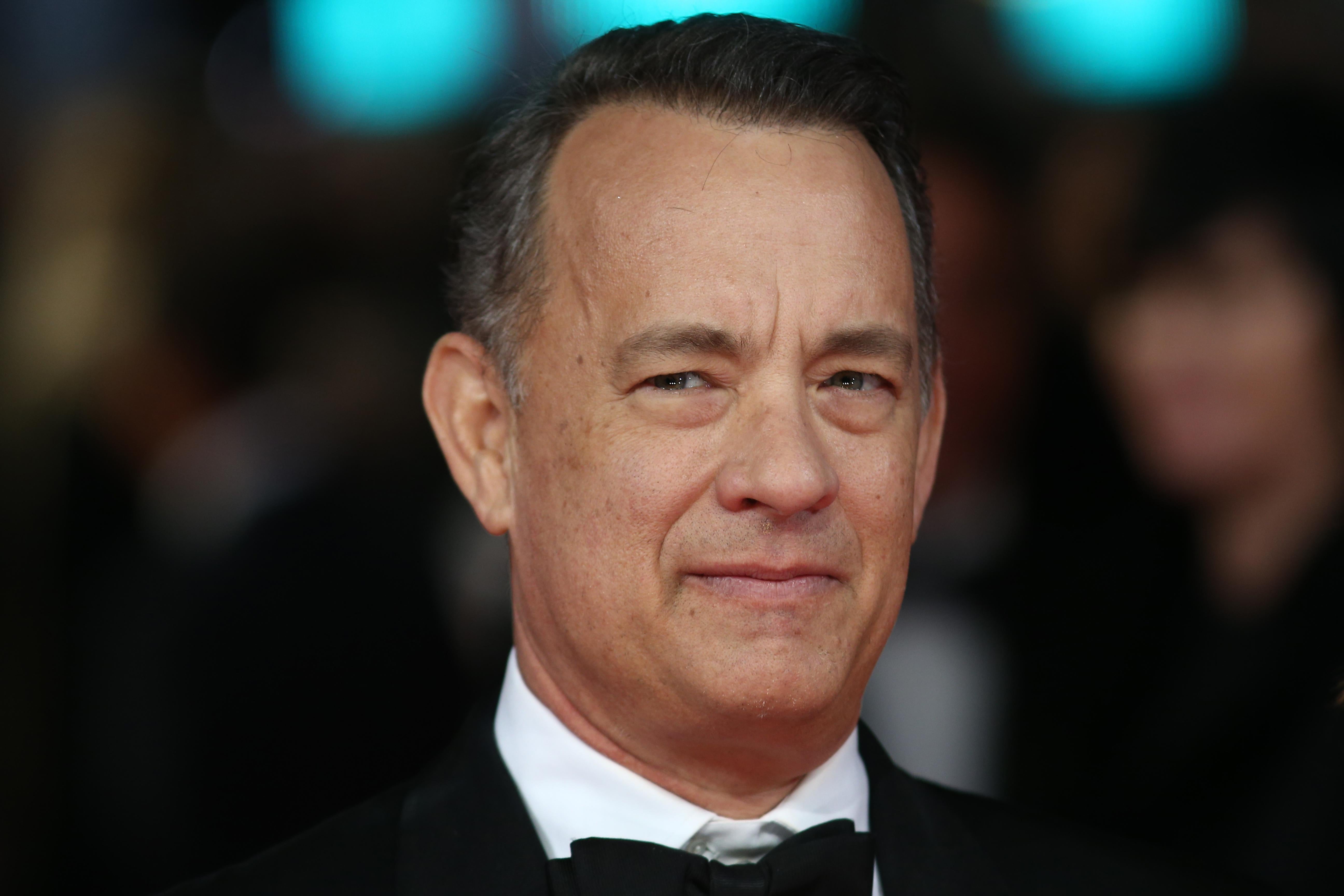Tom Hanks has a short story in this week’s New Yorker. It’s kind of like how Forrest Gump shows up where you least expect him—except, because he’s Forrest Gump, you start to expect him. Anyway, “Alan Bean Plus Four” concerns the moon voyage of four friends—the narrator, MDash, Anna, and Steve Wong—in a homemade spaceship they’ve called the Alan Bean, after the Apollo 12 astronaut. They don’t want to land on the moon, just inscribe a figure eight around it. And that’s what they do, helped along by the magic of 21st-century technology.
I don’t have a lot to say about the story, which basically sums itself up in the first sentence: “Travelling to the moon was way less complicated this year than it was back in 1969, as the four of us proved, not that anyone gives a whoop.” Hanks employs the precisely pitched, stylish-yet-conversational tone that signals “good” (sophisticated, ironic) writing these days. He sprinkles references to gadgets and devices throughout—there is “a pocket-size Kobo digital reader,” a “Max-Q app ($0.99)” that “showed us pulling 11.8 times our weight at sea level,” a “MoonFaze app (free),” a “LunaTicket app ($.99)” for navigation, plus iPads, iPhones, selfies, and other accouterments of homo technologus, circa 2014.
Ambivalent, deceptively casual references to an increasingly omnipresent and personalized army of e-doodads are a trend in fiction. (See Super Sad True Love Story and much of the George Saunders archive). And it’s fine to participate in a trend. But Hanks doesn’t say anything new with the trope. In organizing his tale around space travel, he’s made clear that he wants to pit the mind-numbing aspect of tech immersion against nature’s beauty—brought to you by tech!—and the human capacity for wonder. So he points out that while Apple taketh away, it also giveth. (“The iPads we took had something like seventy billion times the capacity of those Apollo-era dial-ups.”) And he allows his astronauts—who are elsewhere watching Breaking Bad and playing table-less table tennis—a heightened, lyrical moment in which to connect with their forebears: “The moon grabbed hold, wrapping us in her ancient silvery embrace, whispering to us to hurry hurry hurry to wink in wonder at her magnificent desolation,” relates the narrator. That phrase—magnificent desolation—was how Apollo 11’s Buzz Aldrin described the lunar surface.
Hanks’ shopworn ideas about technology might have yet sung if they hadn’t been wrapped in too-clever lit mag-ese. (“There below us was the surface of the moon. Wow. Gorgeous in a way that strained any use of the word, a rugged place that produced oohs and awe.”) And the author flirts with Saunders-lite uplift when he describes the voyagers viewing Earth for the first time as “Circle of Life” comes on the Jambox.
Really? A Disney show tune? But, you know, that rhythm and that chorus and the double meaning of the lyrics caught me right in the throat, and I choked up. Tears popped off my face and joined the others’ tears, which were floating around the Alan Bean. Anna gave me a hug like I was still her boyfriend. We cried. We all cried. You’d have done the same.
Ultimately, the quartet returns to Earth, where no one knows who Alan Bean is. (Guilty—I had to look him up.) Our gadgets and knowhow may have brought the impossible within reach, but have they also inoculated us against wonder?
Well, maybe. I certainly was not blown away by this story, which seems to exemplify a growing New Yorker trend of opening up certain sections to famous Hollywood types. Jesse Eisenberg, Mindy Kaling, Steve Martin, Lena Dunham, and Tina Fey have all recently appeared in the magazine’s pages. Not to reverse-discriminate, but how many of their pieces would have made the cut without the glittering byline? Perhaps it is enough for The New Yorker to deliver the minor thrill of a popular figure trying something new. (Not that Hanks is an entirely unpracticed literary hand: He also wrote the scripts for That Thing You Do and Larry Crowne.) But the world is full of rich, interesting, funny, moving fiction by people we’ve never heard of. It’s a shame to see the high-profile New Yorker fiction perch occupied by a mediocre story that breezed past the bodyguards because of its Hollywood pedigree.
